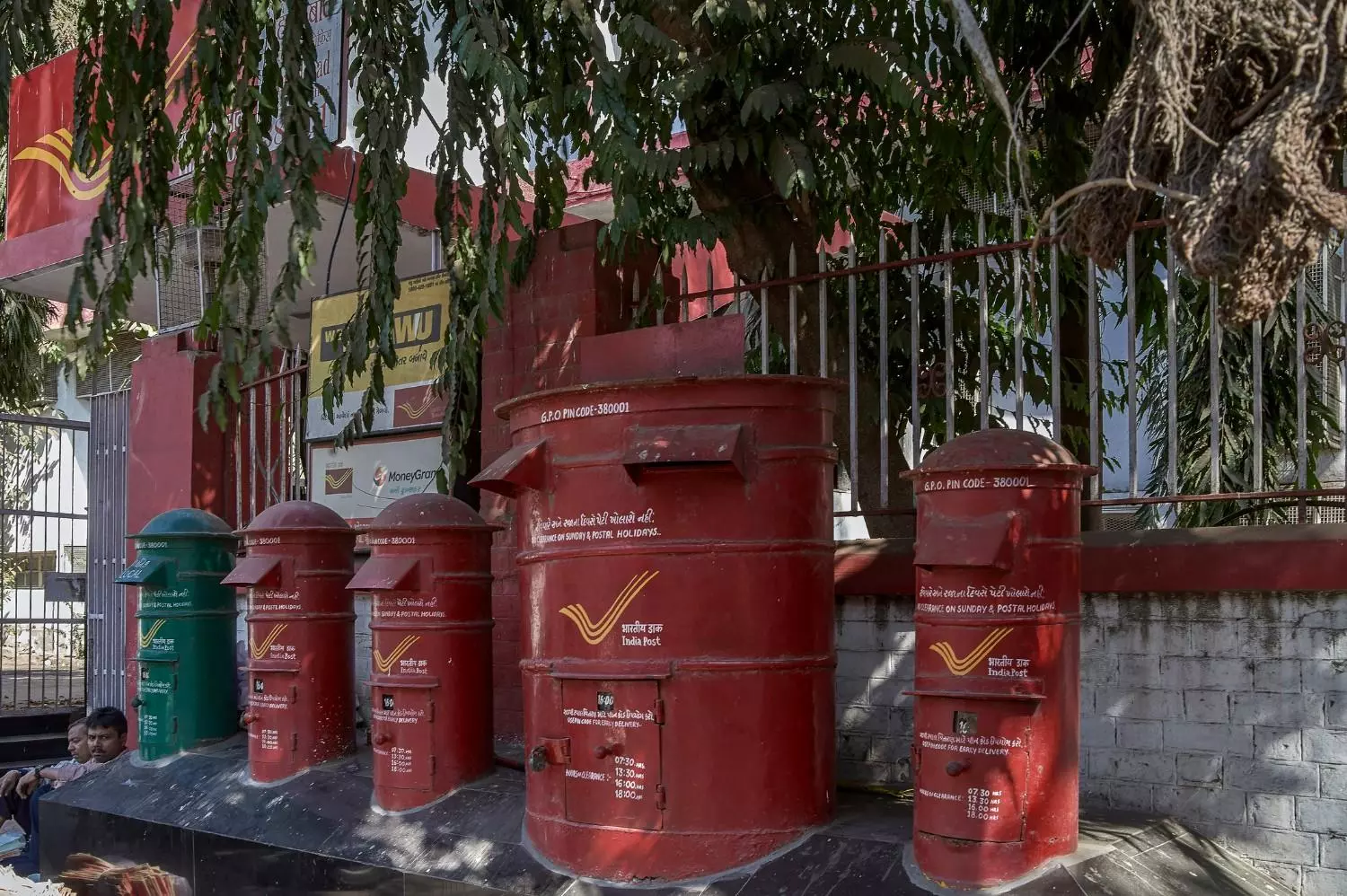
Post office schemes: Centre’s survey in over 4 lakh villages to boost rural savings
Indian households are now saving at their lowest level in nearly seven years, while their debt has doubled over the last 10 years, according to a report

Is there a post office in or near your village?
Have you heard about post office saving bank schemes?
Do you or any of your family members have any post office saving schemes?
Have you heard about Rural Postal Life Insurance?
Have you heard about India Post Payment Banks?
Do you know the services offered by the IPPB?
How do you rate the services of the post office or IPPB?
These form part of a 19-question survey initiated by the Ministry of Communications to evaluate the reach and impact of post office savings and banking schemes as part of efforts to boost personal savings in rural areas.
Indian households are now saving at their lowest level in nearly seven years, while their debt has doubled over the last 10 years, according to a report by CareEdge Ratings released in June this year. This is the third consecutive year of declining household savings.
Centre to promote small saving schemes
According to another survey conducted by the National Bank for Agriculture and Rural Development (NABARD) in May this year, only 18.8 per cent of rural households reported an increase in savings, while 28.7 per cent saw a decline.
Also read: Tax burden will ease further as India’s economy becomes stronger: PM Modi
In response, the Central government has decided to extensively promote small savings schemes such as Kisan Vikas Patra (KVP), Public Provident Fund (PPF), National Savings Certificate (NSC), Recurring Deposit, Monthly Income Scheme, and Term Deposits, according to sources in the postal department.
These schemes play a crucial role in supporting financial inclusion and household savings in rural areas, where post offices remain the primary access point for banking services.
However, the lack of comprehensive data on public awareness, usage, and satisfaction with post office services has prompted the ministry to undertake the nationwide survey. Respondents will be asked to rate postal services on a scale of one to five, sources added.
Survey in over 4.5 lakh villages
According to department sources, the ministry has launched this survey across 480,000 villages in the country, marking the first initiative of its kind on such a large scale.
Also read: FY'25 may see net financial savings touching Rs 22 lakh cr, says SBI report
In West Bengal, the survey will cover 143,000 households across more than 7,000 villages.
In rural branch post offices, services are delivered by gramin dak sevaks, or rural postal workers. They have been tasked with going door-to-door to collect feedback from 20 families in each village.
In addition to basic details such as name, address, occupation, and age, villagers are also being asked to disclose their family’s annual income.
Survey’s aim
The survey aims to assess awareness of small savings schemes offered at post offices, including whether villagers or their family members have invested in any of these schemes, whether they have received any benefits, and how informed they are about Postal Life Insurance and India Post Payments Bank (IPPB) services.
Also read: MSME NPAs to rise moderately to 3.9 pc by FY26 amid US tariff impact: Crisil
Feedback is also being gathered on doorstep services, including banking, various types of insurance, online bill payments, money transfers, and mobile banking.
Why earlier survey failed
Respondents are required to rate different services across 10 categories. The survey also invites them to provide detailed suggestions on additional services they would like to see offered by post offices in the future.
At the same time, the survey will evaluate the availability and accessibility of other postal services in rural areas, such as parcel delivery and speed post, according to an official involved in the initiative.
The latest initiative follows an earlier pilot survey that failed due to multiple errors, officials said. It recorded incorrect mobile numbers of respondents and inaccurate data related to small savings schemes. In some instances, gramin dak sevaks selected households based on personal convenience rather than following proper sampling methods.
In many cases, respondents rated almost all services as "excellent", which raised concerns among postal authorities about the authenticity of the feedback.
This time, to ensure accuracy, the data collected from the field will be cross-verified by personnel from the Ministry of Youth Affairs.
The Central government will use the survey findings to plan focused steps to improve access to savings schemes in rural India and strengthen the role of post offices in helping families save more, sources added.

